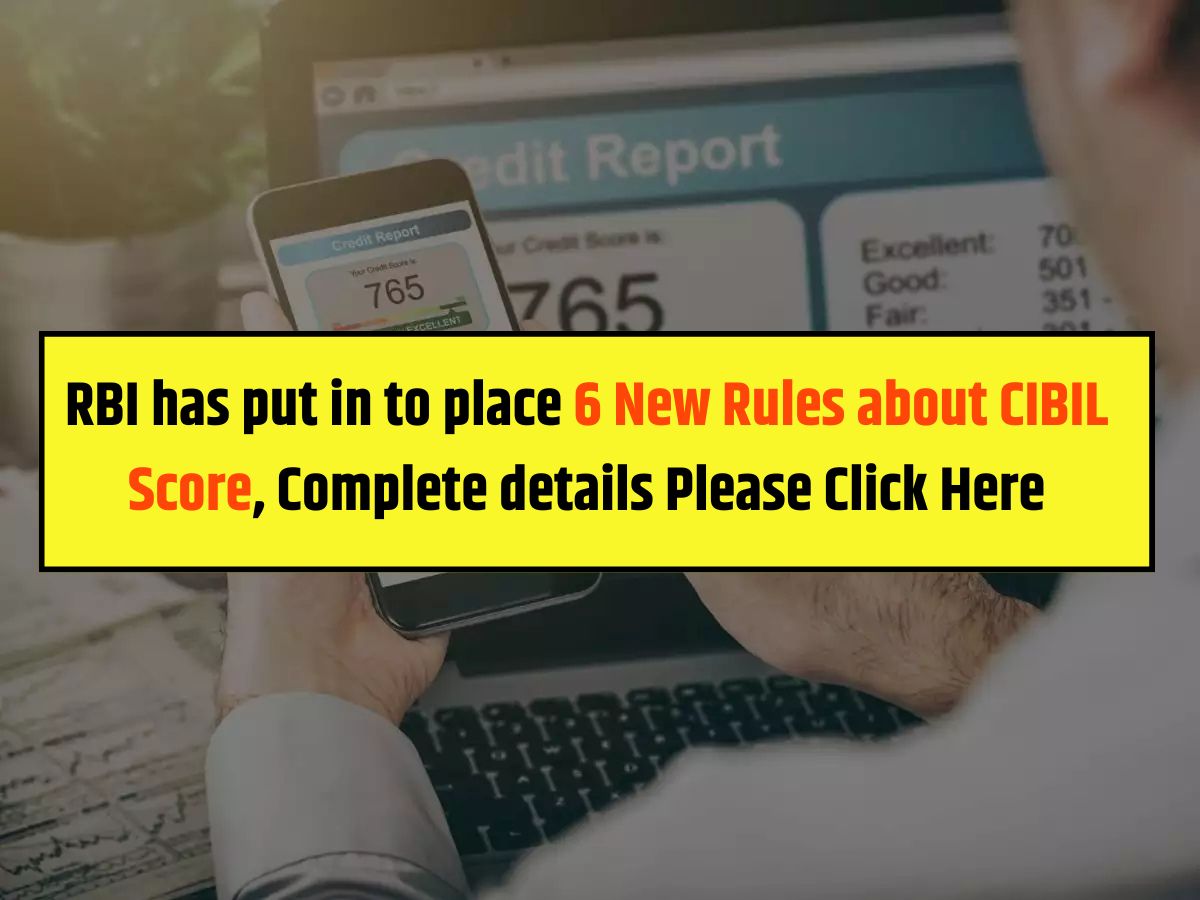RBI makes major changes to CIBIL scores, important update from the Reserve Bank of India (RBI). New guidelines issued by RBI to address the complaints related to CIBIL scores RBI has brought down these regulations for misuse since earlier complaints regarding CIBIL score were growing over time.

The new rules now give credit bureaus a reason not to correct inaccurate data. This is the move to increase customer transparency and faster redressal of their complaints; RBI move aims at making credit bureaus accountable and responsible.
1. Complaints Number Must Be Disclosed
RBI guidelines now say that number of complaints being received on the credit bureau’s website must be disclosed (as mandated by the Reserve Bank Of India). The idea being to bring more transparency This is apart from a country wide set of new rules by the RBI effective from 26th. But people are unaware to a large extent about these new laws. Check these guidelines in detail.
2. Legally speaking, it is Mandatory to Inform your Consumers about the CIBIL Check
The Reserve Bank of India (RBI) has directed credit information companies that When any bank or Non Banking Financial Company (NBFC) is checking a CIBIL score of a consumer, it must inform the said consumer.
Banks or NBFCs can send it through SMS (email too, if need be) Banks are following up to solve the queries related to credit score and RBI has done this step for providing transparency/giving a call with respect to introspection of financial history of consumer.
3. RBI Says, Application Rejected Price Is To be Justified
The Reserve Bank of India (RBI) has also given fresh guidelines; under which if a consumer application is rejected by credit institutions, then the reason for denying is to be sent to consumer immediately.
This rule is intended to help consumers learn why their applications were declined so that they can work on tackling these issues later on. All credit institutions must also prepare and keep a list of justifications for refusals in order to make the process transparent.
This is a very good effort to improve consumer rights, transparency and fairness both in credit system.
4. Get Free Complete Credit Report
The Reserve Bank of India (RBI) mandates that credit institutions should give consumers access to their full credit report for free — one time a calendar year. Here, credit companies will provide a super fast link by simply inserting the links on websites to make customers view their full credit reports at once. Using this process, customers can spot and also fix any misunderstandings or errors in your credit reports to take dealing with it better.
5. Banks have to tell consumers before the loan is declared default
The recent norms of Reserve Bank of India (RBI), for example if a banking company want to disclose any default by the consumer than it must first inform through any medium. The RBI also directed banks to have appointment of nodal officer for all the grievances concerning credit scores.
6. ISSUE shall be resolved within 30 days
Consumer complaints should be settled by credit information companies in 30 days. If this is not done, then a penalty of ₹100 for every day will be levied and the penalty will increase by the day. Complains are supposed to be resolved in 21 days for loan giving institutions and 9 days for credit bureaus. If the loan-providing institution fails to deal with the complaint within 21 days, it will be fined for that. So on credit bureaus if the complaint is not dealt with within next 9 days then agency will be liable for the penalty.





